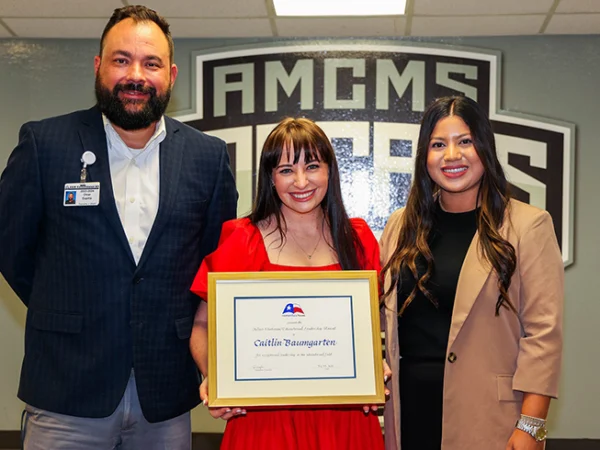How is COVID-19 impacting Career and Technical Education?
As schools across the country shut their doors due to COVID-19, many teachers are having to find ways to modify their classwork for the online environment. However, for Career and Technical Education courses, the transition is not that simple.
CTE programs specialize in the skilled trades, applied sciences, modern technologies and career preparation. They provide students with a hands-on curriculum that prepares them for a wide range of careers.
While lectures, assessments and other pieces of courses can be moved online, CTE programs will lose the hands-on instruction component. Concepts can be taught, but students are missing out on honing their skills with hands-on practice.
“We always stress to our teachers and students to think outside the box, but during these times, CTE educators need to think of how to be innovative while stuck inside the box,” said Dr. Bart Taylor, lecturer in the Department of Teaching, Learning and Culture.
Taylor is also involved with an educational non-profit that supports public school CTE programs. He is struggling to help students and educators find ways to adapt to this new online landscape.
Taylor’s advice for CTE educators can ring true for all educators struggling during this time.
“Educators must understand that the lesson has turned into a journey and we have to encourage and invigorate our students to join,” said Taylor. “We all need to remain vigilant and hopeful and continue to work towards our individual goals, just knowing that the path may have changed a little on our way there.”
Other CTE struggles
Taylor considers CTE one of the most vital parts of the American education system because of the career-ready and employable workers it produces.
“Through enhanced learning opportunities and participation in career and technical student organizations, CTE students are empowered in their education and learn to embrace leadership skills, positive attitudes and pride in workmanship in their skilled or technical craft,” said Taylor.
While CTE programs are gaining attention, oftentimes they are looked over as a pathway to college or a career.
“We need to blur the lines between college readiness and career readiness in secondary education, because inadvertently this allows society to place more importance on entry into college versus learning a skilled trade,” said Taylor. “Many CTE programs result in certifications, licensing or entry into apprenticeships that require the same amount of time and dedication to learning, but the perception of the college education over career education is a taboo that we still need to overcome. Success shouldn’t be measured by the color of your collar.”
To learn more about career and technical education in Texas, visit the Texas Education Agency’s site with information on curriculum, programs, rules and other information.
About the Writer
Ashley is the Media Relations Coordinator and responsible for news coverage in the Department of Teaching, Learning and Culture as well as the Department of Educational Psychology.
Articles by AshleyFor media inquiries, contact Ashley Green.












